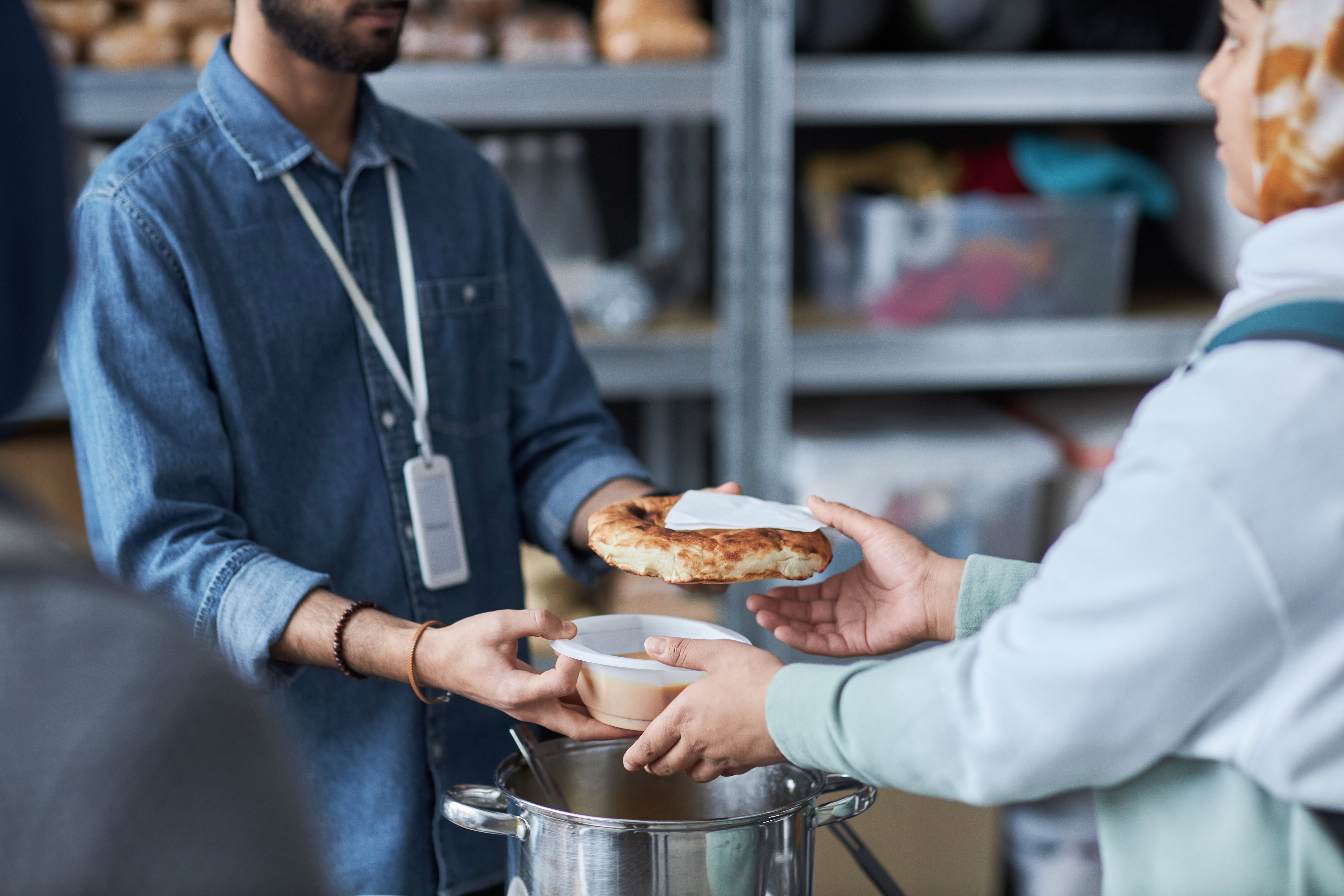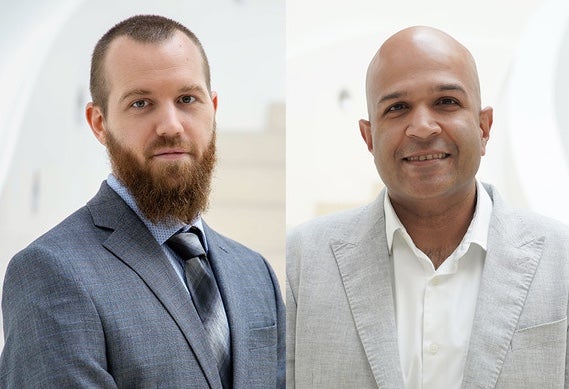By Dr. Esmat Zaidan

Ramadan is a period rich with spiritual significance, marking a time for deep reflection, prayer, and community for Muslims around the world. This period emphasizes the importance of giving back to the community and helping those in need. The focus on social responsibility manifests in various forms, from individual acts to organized philanthropic efforts, and sees a significant increase in charitable giving, with mosques, community centers, and others organizing food drives, fundraising events, and volunteer activities. Through these efforts, Ramadan becomes a vehicle for transformative social impact, uniting people across different backgrounds in a shared mission of compassion and support. As we explore the myriad ways in which this holy month makes a difference beyond fasting, we uncover the lasting influence of Ramadan's spirit on communities around the globe.
Volunteer Initiatives and Humanitarian Projects
From food distribution to clean-ups, and more, Ramadan brings communities around the world together to engage in humanitarian projects and volunteering activities. Organizations such as Islamic Relief Worldwide and Muslim Aid, for example, concentrate their efforts on providing medical assistance and distributing food packages to crisis-hit regions. Often open to Muslims and non-Muslims, these activities create societal bonds and promote understanding and respect between different cultures and religions. One of the most remarkable examples of volunteer initiatives during Ramadan takes place in Canada. The annual Give 30 campaign encourages individuals and communities to donate money to the equivalent value saved from fasting to food banks in their respective localities. Originating from Toronto, the campaign has expanded to food banks across the country.
Another significant example is the Muslim Welfare Centre’s Project Ramadan initiative, which mobilizes volunteers from all faiths to assemble and distribute food baskets to families in need in places such as Yemen and Syria. Other multi-faith events include the United Kingdom’s Grand Iftar in Birmingham and volunteer-led environmental projects in the Indonesian capital Jakarta that integrate religious devotion with civic responsibility. Held on the 21st day of the holy month, a 2-kilometer-long joint Muslim-Christian initiative recently broke Belgium’s record for the longest community dinner table. Thousands of residents in the city of Antwerp participated in an interfaith event that also coincided with Easter Day. The initiative also had a zero-waste policy and encouraged participants to use the diversity of religion and culture to enjoy each other’s holidays. These collective efforts not only address food insecurity but also showcase the power of collective action and Ramadan's ethos of giving and service beyond cultural and religious boundaries.
Closer to home, the State of Qatar supports the voluntary sector by providing logistical support and regulatory facilitation for charitable activities. Ramadan tents supported by businesses and individuals offer free meals and embody the spirit of community and generosity. For its part, the Qatar Red Crescent Society continues to provide humanitarian assistance at home and abroad. Qatar’s diverse community engagement programs during Ramadan also reflect a national commitment to fostering a cohesive society through a combination of tradition and modern organizational efficiency.
Charitable Organizations Mobilizing Communities
Ramadan also sees charity-based organizations around the world scaling up their activities and witnessing an increase in donations. Such activities are often accompanied by public awareness campaigns highlighting a range of social issues impacting impoverished communities. For instance, the UK-based Penny Appeal's Feed Our World program provides daily meals to the needy, utilizing social media to document and share its work, thereby inspiring further contributions. Similarly, Indonesia’s Zakat Foundation makes extensive use of online campaigns to attract global support for its educational programs and clean water projects.
Qatar’s charitable initiatives are further strengthened by a harmonious alliance between organizations, state, and society. At the direction of the Qatari government, Qatar Charity provides extensive food distribution and healthcare services within and outside the country. Its Ramadan campaign is further amplified through social media and digital engagement, encouraging wider public participation. Likewise, the Qatar Red Crescent Society utilizes the online environment to promote awareness and highlight its activities during the holy month. This dynamic blend of traditional charitable endeavors and modern technological engagement highlights the transformative power of Ramadan's spirit of generosity. Through innovative engagement, these efforts not only address immediate needs but also pave the way for sustainable development and long-term societal impact.
Impact Beyond Ramadan
The enduring legacy of service and philanthropy developed throughout Ramadan extends way beyond its thirty days, emplacing an indelible ethos of humanitarianism and social responsibility upon observers. It is the work of the initiatives and capital accumulated in this time that speaks through community reflections, offering continued support and showing the lasting, meaningful impact of the charitable activities made possible by Ramadan. This sets a continuous pace of being lifted and proves that the seeds of goodwill sown during the month produce lasting changes. Focusing on community service and charity also demonstrates collective support for overcoming societal challenges. This powerful and impactful movement becomes a clarion call for every society to recognize the multiple capabilities of individuals and collectives that go far beyond the temporal bounds of Ramadan.
Reflecting on the broader social impacts of Ramadan, this goes beyond traditional observance to give a poignant example of how deep spiritual principles can be translated into tangible societal benefits. And so, this month is a whole lot more than merely another month of personal abstinence but rather a reverberating, powerful vehicle for communal transformation and social resilience. It indicates the capacity of the shared collective human spirit based and ability not only to confront but also alleviate the multifaceted challenges facing our global community.
With its inherent emphasis on philanthropy and community service, the legacy of Ramadan poses a compelling challenge to the ephemeral nature of modern-day acts of charity. It requires a more sustained model of humanitarianism, one that is not woven into the very fabric of our daily lives with something that dares to beckon us out of temporal boundaries. Reflecting on the lessons of Ramadan, we come to relearn our shared humanity and continue to find cause and impact. In this light, it can only be said that Ramadan offers not just a time of reflection but a blueprint for a more compassionate, equitable, inclusive, and interconnected world.
Dr. Esmat Zaidan is Associate Professor at Hamad Bin Khalifa University’s (HBKU) College of Public Policy (CPP).
This article originally appeared in The Peninsula on April 7, 2024, and is reproduced with permission. The thoughts and views expressed are the author’s own and do not necessarily reflect an official University stance.







